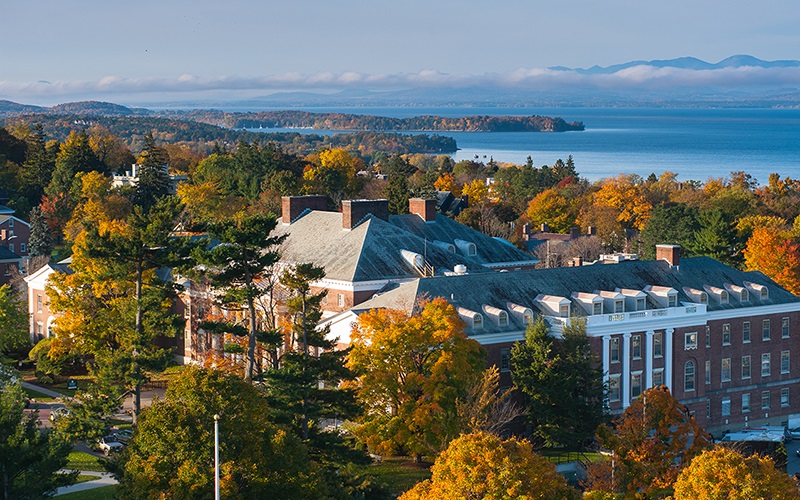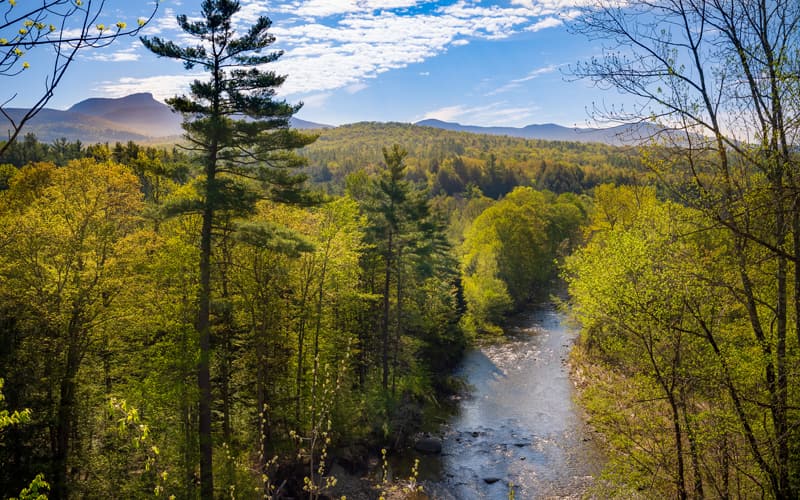PRESENTED BY university of vermont
As the world contends with climate change, many industries are placing more focus on sustainability initiatives. It's fair to say a number of universities are leading the charge, especially the schools on our Green College Ranking List. We spoke with one such institution, the University of Vermont, about their eco-friendly programs and endeavors.

Which majors offered by the University of Vermont focus on sustainability? Are there any particularly popular or unique ones that tend to draw in your students?
UVM’s interdisciplinary Environmental Program, established in 1972, is one of 19 undergraduate majors focusing on sustainability, from food systems to environmental engineering to international development. Additionally, 75 percent of UVM departments, from business to health sciences, offer sustainability-related courses. All students take at least one sustainability course, a requirement grounded in UVM’s commitment to research and education that serves the health of our society and planet.
Burlington’s vibrant urban community and Vermont’s working landscape and natural areas offer students unique opportunities for community-engaged learning through hands-on projects, working alongside experts in innovative social, environmental, business, land management, and agricultural practices.

Are there research or study abroad opportunities available to students interested in sustainability? Are there designated centers or locations for this? Or, are there sustained committees that include representation or input from students?
Sustainability-focused study abroad options include many 2–6 week faculty-led courses, such as “Sustainable Development” in Kenya and 1–2 semester-long experiences in New Zealand, Botswana, Patagonia, and other parts of the world through exchanges with other universities and programs recommended by UVM's international education office.
Students engage in sustainability research in areas ranging from new energy development, to healthcare delivery, to water supply. Students sitting on the Socially Responsible Investment Advisory Council help select among research and infrastructure proposals to the Sustainable Campus Fund, initiated by students in 2006 with a self-imposed $10/semester fee, generating about $220,000 per year.

Are there particular buildings or efforts on campus that highlight the school's commitment to sustainability?
UVM ranks among the Princeton Review’s top green colleges. Since 2005, all new construction has met or exceeded Green Building Council LEED Silver standards. A student- and faculty-led redesign of the Aiken Center created a LEED Platinum structure with a green roof that is both teaching resource and best practice.
Banning the sale of bottled water on campus and divesting of fossil fuel investments are among recent sustainability causes where UVM student activism has been pivotal. Groups leading the way include UVM Eco-reps, student leaders promoting sustainable practices on campus, and the Student Government Association Committee on the Environment.
If you’re interested in learning more about eco-friendly schools, check out our Guide to Green Colleges.
Explore Colleges For You
Connect with our featured colleges to find schools that both match your interests and are looking for students like you.
Get Started on Athletic Scholarships & Recruiting!
Join athletes who were discovered, recruited & often received scholarships after connecting with NCSA's 42,000 strong network of coaches.
Best 389 Colleges
165,000 students rate everything from their professors to their campus social scene.



